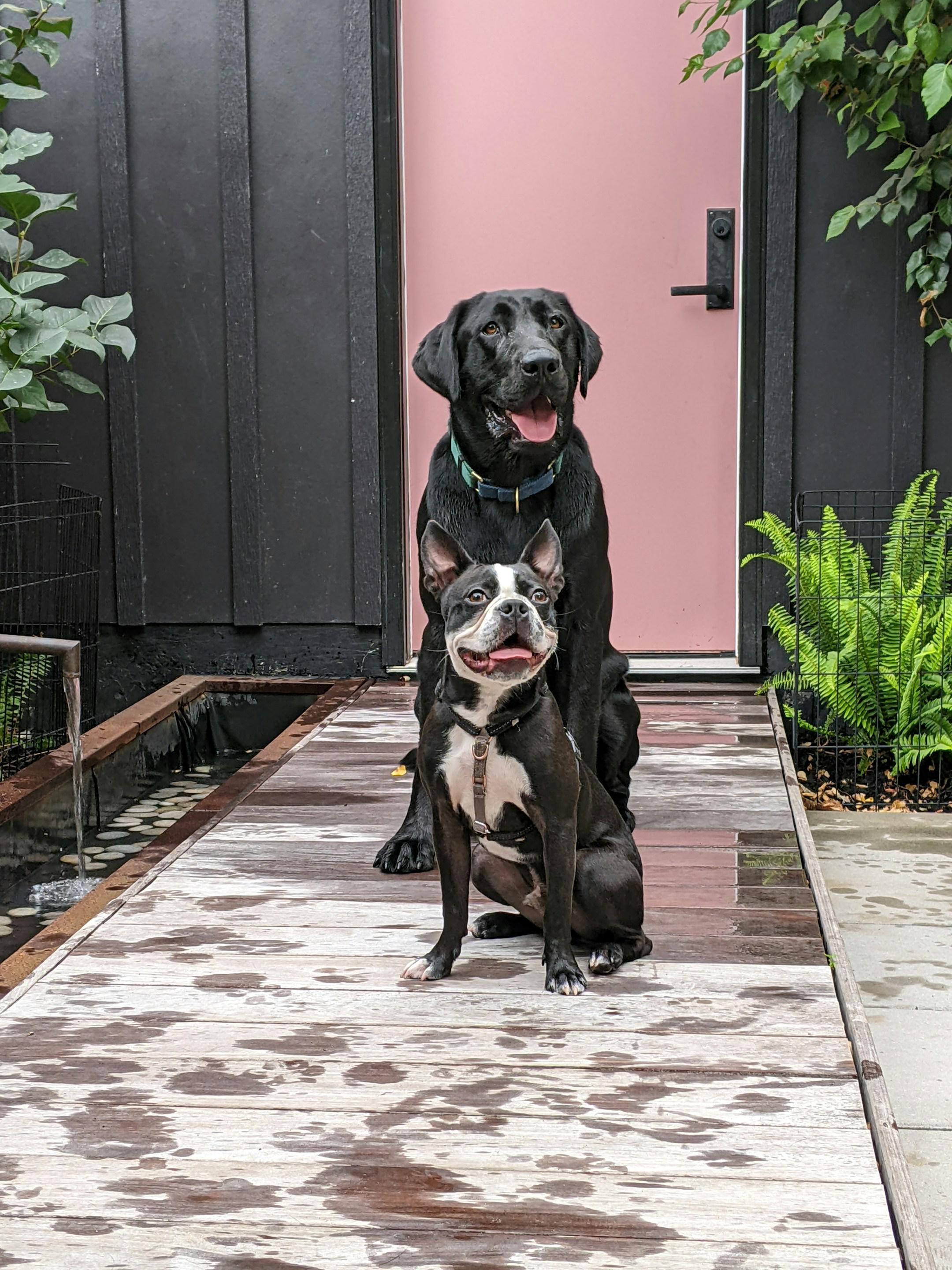Website designed with the B12 website builder. Create your own website today.
Start for free
Puppy socialization is a crucial aspect of raising a well-adjusted dog. From the moment a puppy enters your home, their experiences and interactions shape their behavior for the rest of their lives. Proper socialization helps prevent future behavioral issues, such as anxiety or aggression, by exposing your furry friend to different people, environments, and situations. By prioritizing socialization, you set the foundation for a confident and friendly dog, making outings and interactions not just manageable but enjoyable for both you and your pet.
In this blog post, we will explore the importance of puppy socialization and provide essential tips to ensure your pup grows into a well-mannered companion. We will also address common challenges that arise during the socialization process and offer practical solutions to overcome them. Whether you’re a first-time dog owner or seasoned in pet parenting, understanding the intricacies of puppy socialization will empower you to raise a happy, well-adjusted dog that thrives in various social situations.
The importance of puppy socialization for a well-adjusted dog
Puppy socialization plays a crucial role in developing a well-adjusted and confident dog. During the first few months of life, puppies go through a sensitive period where they are exceptionally receptive to new experiences, sounds, sights, and smells. Early exposure to a variety of environments, people, and other animals helps prevent behavioral issues later on, such as fear, anxiety, and aggression. By engaging in positive socialization experiences, puppies learn how to communicate effectively and interact appropriately with others, making them more adaptable in different situations as they grow.
Failing to adequately socialize a puppy can lead to challenges that impact both the dog and its owner. A poorly socialized dog may exhibit fearfulness or aggression in unfamiliar environments, potentially leading to dangerous situations or the need for behavioral interventions down the line. In contrast, well-socialized dogs tend to be more relaxed and open to new experiences, which can significantly enhance their quality of life. Socializing your puppy contributes to a happier, healthier relationship between you and your furry friend, ensuring that they become a beloved and well-mannered member of your family.
Essential tips for effective puppy socialization
One of the most effective ways to socialize your puppy is to expose them to a variety of people, environments, and other dogs. Start socialization early, ideally between the ages of 3 and 14 weeks, when puppies are most receptive to new experiences. Take your puppy on outings to different locations such as parks, pet-friendly stores, or bustling outdoor markets. Allow them to meet various people, including children, seniors, and individuals wearing hats or sunglasses. These interactions help your puppy build confidence and learn to respond positively to different stimuli they might encounter in daily life.
Another crucial aspect of puppy socialization involves the use of positive reinforcement to encourage good behavior. Reward your puppy with treats, praise, or playtime whenever they exhibit calm and friendly behavior during socialization activities. Consider enrolling your puppy in a structured socialization class, where they can interact with other puppies in a controlled environment. This not only helps them learn social cues from their peers but also provides an opportunity for you to gain valuable insights into training and behavior management. Remember, consistency is key; frequent and positive exposure to new experiences ensures your puppy grows into a well-adjusted and sociable adult dog.
Common challenges in puppy socialization and how to overcome them
Puppy socialization can be challenging for many pet owners, particularly when their furry friend displays fear or aggression towards new experiences, people, or other animals. One common issue is the natural shyness that some puppies exhibit. This can lead to avoidance behaviors, where they refuse to engage with other dogs or people. To help your puppy overcome this challenge, gradually expose them to new situations in a controlled and positive manner. Begin with short, positive experiences and gradually increase the exposure as your puppy becomes more comfortable, ensuring to always offer praise and treats for appropriate behavior.
Another significant challenge in puppy socialization is the fear of loud noises or bustling environments, which can be overwhelming for young dogs. This fear can hinder their ability to enjoy outings, like walks in the park or trips to pet-friendly stores. To alleviate this, create a safe space at home where your puppy can retreat when feeling anxious. Introduce noises in a controlled way, such as playing recordings of sounds like thunder or traffic at a low volume while providing treats and positive reinforcement. Over time, this desensitization process can help your puppy feel more at ease in various environments, paving the way for a confident and well-adjusted adult dog.